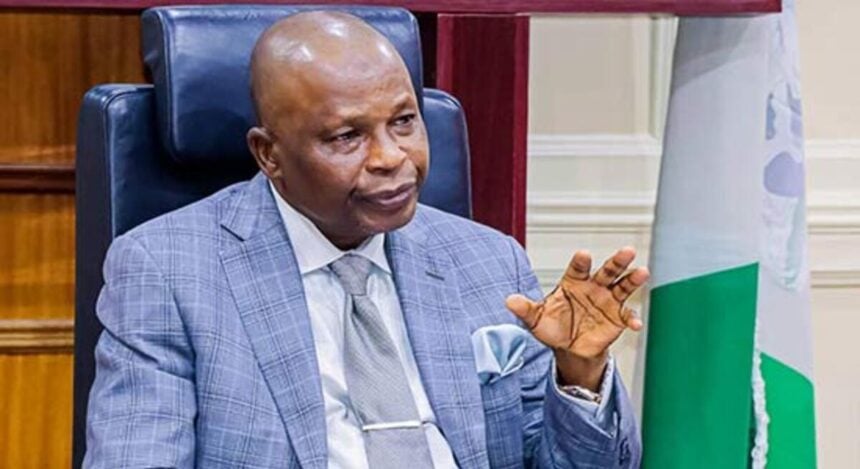The Federal Government has assured its commitment to strengthening access to justice, promoting transparency in business operations, and empowering communities to actively participate in decisions that affect their lives and livelihoods.
The Attorney General of the Federation (AGF) and Minister of Justice, Prince Lateef Fagbemi, SAN, gave the assurance while declaring open a two-day national dialogue on business and human rights in Abuja.
While noting that the national dialogue was a step towards embedding human rights within the conduct of business in Nigeria, the AGF stated that the adoption of the National Action Plan (NAP) on Business and Human Rights (NAPBHR) stands as a milestone, aligning the nation with global best practices, particularly the United Nations Guiding Principles on Business and Human Rights (UNGPs).
“With this, Nigeria proudly became the third country in Africa to develop and adopt a NAP specifically addressing business and human rights. This is not merely a procedural achievement; it is a moral and strategic imperative,” he said.
According to the Minister of Justice, the event is both timely and necessary, especially as the administration of President Bola Ahmed Tinubu is implementing transformative reforms to strengthen the investment climate and foster sustainable development in the country.
In his speech, the UN Resident and Humanitarian Coordinator in Nigeria, Mr Mohamed Malick Fall, commended the Government of Nigeria for its efforts in preventing and addressing business-related human rights abuses. He added that the National Action Plan on Business and Human Rights represents a national commitment to protecting human dignity, preserving the environment, and ensuring that economic progress benefits everyone.
When fully implemented, he said, the National Action Plan will align Nigeria’s economic goals with its human rights obligations, particularly in addressing business-related human rights abuses. He emphasised that the plan lays a strong foundation for ethical business conduct, which is essential for sustainable growth in Africa’s largest economy.
*”By doing so, Nigeria is creating a business environment that attracts responsible investment and fosters inclusive prosperity. Its adoption—and now its implementation—has truly raised hopes for more effective management of human rights risks by businesses.
“It reflects Nigeria’s broader commitment to the Universal Declaration of Human Rights and the Sustainable Development Goals,”* he said.
Fall assured that the United Nations would continue to assist Nigeria in elaborating policy frameworks for responsible business conduct and aligning them with the UN Guiding Principles on Business and Human Rights and other authoritative regional and international normative frameworks.
Earlier in his welcome address, the Executive Secretary of the National Human Rights Commission (NHRC), Dr Tony Ojukwu, SAN, stated that the two-day national dialogue was organised as part of a commitment to ensuring that economic and business development in Nigeria is anchored on respect for human rights and dignity.
He noted that the approval by the Federal Executive Council and the adoption of the National Short Plan on Business and Human Rights marked a defining moment in Nigeria’s journey towards ensuring that its economic development and business environment uphold human rights and dignity.
As an assurance of the government’s commitment to implementing the plan, Ojukwu said the Government of Nigeria had deposited the draft on business and human rights with the Office of the UN High Commissioner for Human Rights in January last year.
He said the action plan provides a practical framework for government, businesses, and civil society to work together to prevent, mitigate, and remedy human rights abuses linked to business operations.
The two-day national dialogue was organised by the NHRC, in collaboration with the United Nations Development Programme (UNDP), UN Compact, UN Human Rights Office, the United Kingdom Foreign, Commonwealth and Development Office (UKFCDO), and the Government of Norway.
ALSO READ FROM NIGERIAN TRIBUNE
WATCH TOP VIDEOS FROM NIGERIAN TRIBUNE TV
- Let’s Talk About SELF-AWARENESS
- Is Your Confidence Mistaken for Pride? Let’s talk about it
- Is Etiquette About Perfection…Or Just Not Being Rude?
- Top Psychologist Reveal 3 Signs You’re Struggling With Imposter Syndrome
- Do You Pick Up Work-Related Calls at Midnight or Never? Let’s Talk About Boundaries







